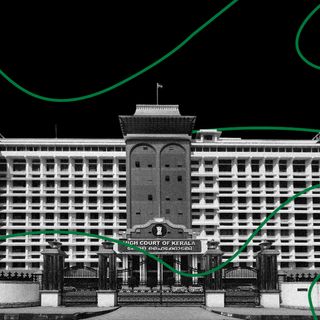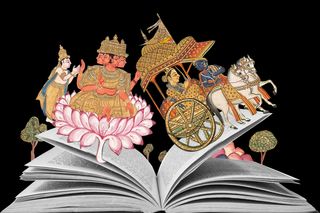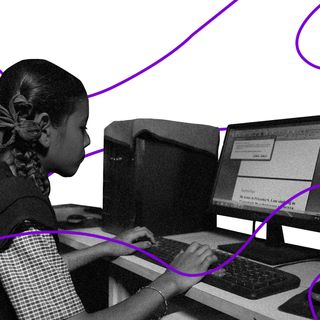
History Books Should Include Vedas, Bhagavad Gita for ‘Unbiased’ Education: Govt Panel
“The portion which enhances self-esteem and national pride and unity should be highlighted and emphasized.”

A Parliamentary committee on education on Tuesday recommended a wide range of changes to school history textbooks. The reforms include studying “ancient wisdom and knowledge” from scriptures, reviewing how we mention freedom fighters, mentioning women leaders, and highlighting “national pride.” These are all in service of education that is “free of biases,” the panel said.
The key recommendations come as the National Curriculum Framework (NCF) is set to be revised ahead of the National Education Policy (NEP) 2020 implementation. Two months ago, the central government set up the committee to frame overarching guidelines, which can then inform changesto the National Council for Educational Research and Training (NCERT).
The standing committee on education, women, children, youth, and sports, is headed by Bharatiya Janata Party (BJP) minister Vinay P. Sahasrabuddhe. The committee has 10 Rajya Sabha members (with 4 members from BJP) and 21 Lok Sabha members (12 members from BJP). Its report, titled “Reforms in context and design of schools textbooks” was tabled in the Rajya Sabha yesterday.
School textbooks should incorporate the “ancient wisdom, knowledge and teachings about life and society from the Vedas and other great Indian texts,” the panel said. This may include knowledge from thefour Vedas and parts from Agam Literature (scriptures from Jainism).
The contention with historical representation in textbooks was the locus of the recommended changes. The panel noted thatmany historical figures and freedom fighters were “incorrectly” portrayed as “offenders”; depictions that should be corrected and leaders must be given adequate respect. Even contributions of female leaders such as Mahasweta Devi, Kalpana Chawla, Savitribai Phule should make it to the pages, the panel noted.
Along with this, the focus should be on adding histories of the empires of the Deccan and the history of the Northeast, and the Sikh and Maratha communities should be fairly included. The reforms will remove “unhistorical” facts and distortions from history, the panel insists.
Related on The Swaddle:
A Telangana Class 8 Textbook Image Equates Muslims With Terrorists
Based on the recommendations, the NCERT had previously included topics like Swachh Bharat, Digital India, demonetization, GST, “Beti Bachao Beti Padhao” policies — in a bid to account for “post-independence” histories as well. In other modern histories, the panel also recommended textbooks to “warn” children about “evils” like drug addiction and internet addiction.
But the idea of updating history and creating the next generation of literature is rife with ethical considerations. “The recent as well as past attacks on history textbooks, with those engaged in distorting Indian history seeking to use textbooks to push their political agenda of creating a Hindu nation, is a curious inversion of reality,” scholar R. Mahalakshmi wrote in Frontline.
The question has split India for decades now. Only recently in January, a former NCERT director told a committee the current textbooks distort history by “glorifying” Mughal leaders. The “overrepresentation” may be justified because the “Mughals ruled over large swathes of India, produced remarkable rulers, and left behind great architectural structures as well a significant amount of literature,” Firstpost noted. Over the years, some historical facts about the Mughals have disappeared from history books.
Instead, the officials said history should have more representations of different dynasties like the Cholas and Pandyas. “We need to glorify our national heroes and give proportionate references to all periods of Indian history,” one of the ministers said. This attempt at glorification and harping on about the “golden bird” status of India seems to derive its roots solelyin ancient Vedic texts. For instance, presently, one of the recommendations the panel received noted “the portion which enhances self-esteem and national pride and unity should be highlighted and emphasized.” That the idea of “glory” carries tinges of Hindu nationalism in it doesn’t go amiss.
Moreover, when the NCERT tried to introduce modules on transgender inclusion in schools, the manual was withdrawn due to criticism from some right-wing groups. The complaint said these inclusions may “traumatize school students under the name of gender sensitization.” The national child rights body asked it to “rectify the anomalies” in the document. The insistence on gender justice in the current set of recommendations then feels limited in its inclusion.
In July this year, the Indian History Congress (IHC), one of the largest bodies of historians and scholars, called the parliamentary panel’s initial claims “objectionable” as it delegitimized scholarly inputs given after extensive research. The IHC also said that the changes “reflect a bias” that is not research-based.
A responsible revision would mean “not meddling with textbooks in any educational board, setting up more vigorous ways to evaluate ‘ancient Indian knowledge,’ funding more legitimate research and spending less time talking about doing so, celebrating our history in its appropriate context, chastizing government officials who utter nonsense, and ensuring those engaged in these tasks get the respect they deserve,” they noted.
It is no surprise that most histories in the world are written, and rewritten, with a bias towards the prevailing victors. But relentless conflating truth, history, and glory appear to solidify a worrying narrative — one that is far from being accurate.
Saumya Kalia is an Associate Editor at The Swaddle. Her journalism and writing explore issues of social justice, digital sub-cultures, media ecosystem, literature, and memory as they cut across socio-cultural periods. You can reach her at @Saumya_Kalia.
Related


Gender Stereotypes Can Drop Girls’ Interest in STEM by 50%, Suggests Research
